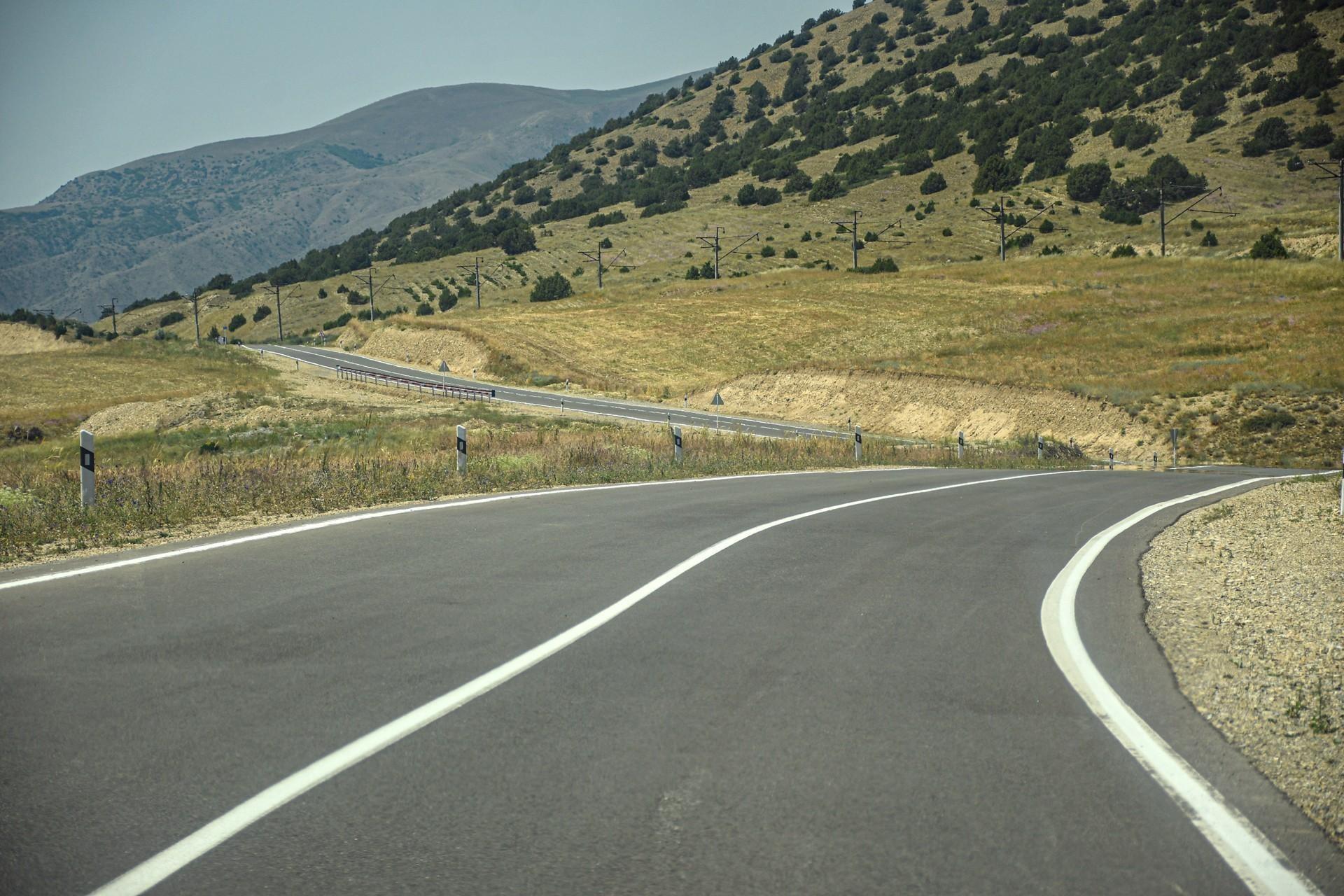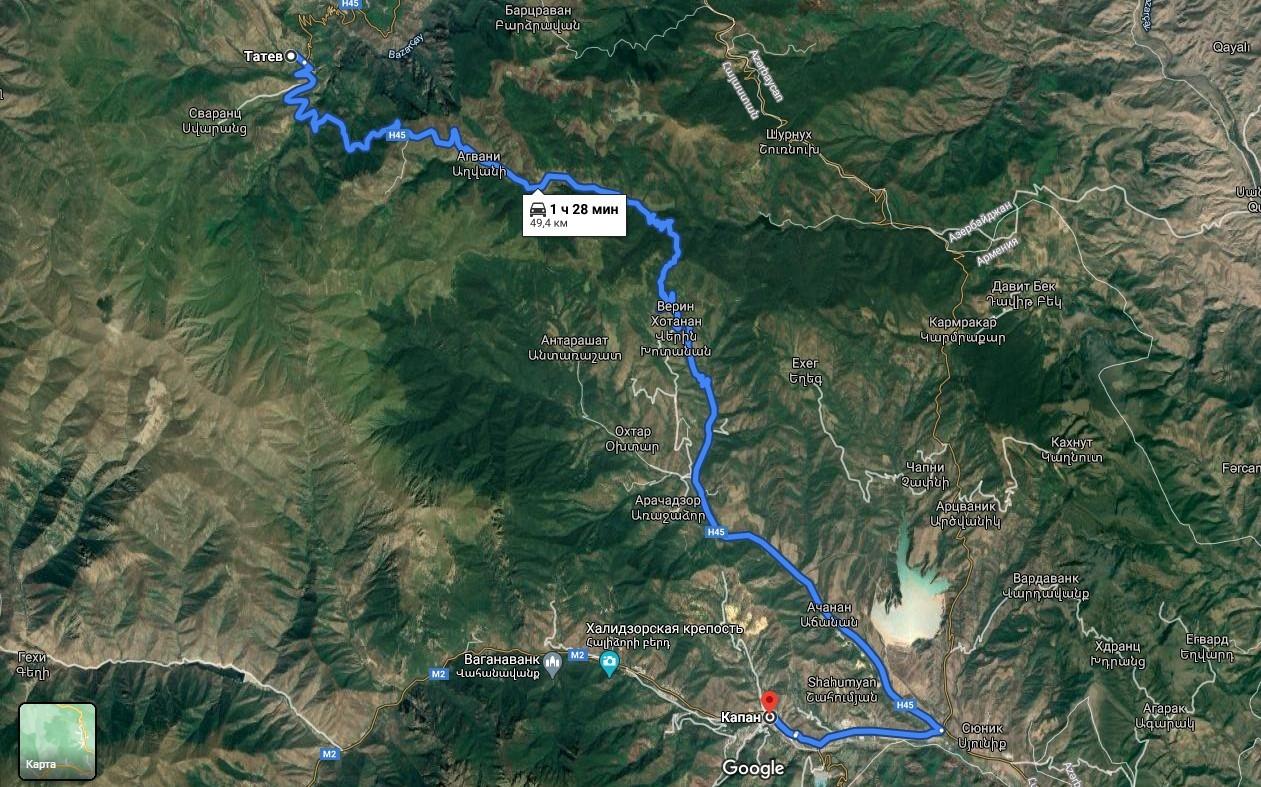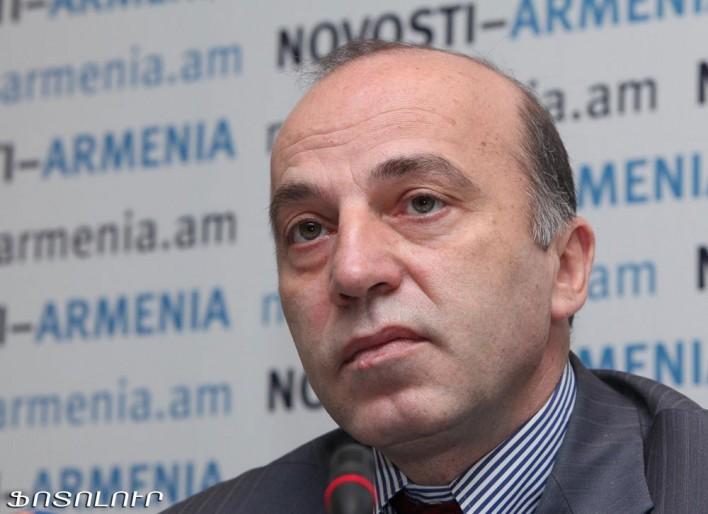
Artsakh War Negatively Impacts Pace of Road Construction in Armenia, Says Ministry
The 2020 Artsakh war has affected the pace of road construction in Armenia, which has caused the deadline for repair works of a number of road sections to be extended and postponed to 2021.
The Ministry of Territorial Administration and Infrastructure (MTAI) stated this in response to a written inquiry from Hetq.
From September 27 to November 9, no new procurement procedures were initiated for road construction projects, but at the same time the renovation and repair of 416 km of public state highways envisaged by the 2020 state budget were continued.
In particular, according to data provided by the Ministry of Territorial Administration and Infrastructure, renovation works on the 51.74 km stretch of the M6 Vanadzor-Alaverdi-Georgian border interstate road and the reconstruction of Tranche 3 of the North-South highway (18.7 km of the Talin-Lanjik road and 27.5 km of the Lanjik-Gyumri road) continued. The construction work were funded by loans and co-financed by the RA government.
In a written inquiry, Hetq also asked the ministry to provide information about projects, if there were any, regarding the unblocking of transportation routes and construction of new transportation networks in our region, as stated in the trilateral agreement signed on November 9. However, the MTAI stated that the provisions of the agreement are subject to discussion during further negotiations.
"The tendency is not to raise questions, but to neutralize the questions"
During an interview with Hetq, Minister of Territorial Administration and Infrastructure Suren Papikyan, while discussing the reasons for the slowdown in road construction during the war, singled out several factors: First, road construction on the Goris-Kapan highway had been stopped out of security concerns, as hostilities had reached the border with Syunik as well. Second, when mobilization was declared, the equipment needed for road construction was also moved to the frontline and construction and road workers also participated in the military mobilization. Nonetheless, Suren Papikyan stressed that the general work index of the Ministry has not suffered by and large and they have solved the set problems.
During the border demarcation processes that followed the war, Armenia’s Ministry of Defense announced that some parts of the 21 km stretch of the Goris-Kapan highway passes through disputed territory, which raised security concerns for traveling on that road.
In this regard, Suren Papikyan noted that there are disputed sections of the road, where the road leaves Armenia’s internationally recognized borders and then re-enters them again. According to the Minister, despite the fact that security of the road is ensured by Armenian and Russian border guards, it is nevertheless necessary to build roads passing entirely through the area. Regarding the alternative Tatev-Kapan road, Suren Papikyan noted that construction was carried out on the 12.5 km road from Tatev to Aghvan village in 2020 at the request of the governor of Syunik. According to Suren Papikyan, initially the road was designated for cars only. However, taking into account the current situation, the road will undergo change, resulting in a higher quality road that will be appropriate for trucks as well.
In speaking about the unblocking of regional transportation routes noted in the trilateral agreement, the Minister of Territorial Administration and Infrastructure said that this means all transportation routes should be opened, including air and land transport. When asked whether this will raise security questions, Suren Papikyan stated that questions can always arise, but in this case, the tendency is not to ask questions but to neutralize the questions.
“Given the fact that there have been no relations for 30 years and there was the only animosity, it is understandable that the public has such concerns. Time is needed for that to pass. It also depends on the neighboring country. The intention to take such steps should not just be declared, but must also be proven with practice,” said the Minister.
Given the current realities, the Ministry will focus on state and interstate highways.
“Most of the work will be carried out in this direction, taking into account the need for new roads, which also entails the construction and renovation of pre-existing routes and alternative roads,” Suren Papikyan concluded.
An economist believes that internal communications must first be open
In a conversation with Hetq, economist Tatul Manaseryan described the steps taken to unblock the region.
“For instance, if we were to consider the phrase “unblocking communication'', it does not tell us much. In this case, internal communications must first be open. For example, with assistance from Russian peacekeeping forces, the indigenous Armenian population must have free access to Shushi, Hadrut, and other settlements. If that does not happen, talks about unblocking transportation routes are just pretense on our side,” says the economist. He added that, even if there are open communication channels and Armenia and Azerbaijan start trading, there are various risks for Armenia.
“The paralyzed condition of the current government will not enable it, in essence, to find effective solutions for economic issues. I believe that the level of competitiveness is not enough to open the border.”
Manaseryan considers the issue of importing goods to be a priority. “Goods from Turkey, not so much Azerbaijan, will come to Armenia from Azerbaijan, because communications are mainly coming from the West. Cheap Turkish goods will flow into Armenia from Nakhijevan, creating serious competition with domestic production.”
The economist notes that the scale of local production cannot match that of Turkey and that steps taken by the authorities over the last years have made it impossible to develop the economic sphere.
“Turkey and Azerbaijan are clearly implementing programs, including road construction, while Armenia does not even have a national agenda yet,” Tatul Manaseryan concluded.
The expert points out the main weaknesses of Armenia’s road construction sector
In a conversation with us, Tigran Karapetyan, a specialist in the field of road construction and urban development who lives and works in Saint Petersburg and who has experience in working with Armenia’s Ministry of Territorial Administration and Infrastructure, notes that there is a lack of specialists in Armenia and that unqualified people are engaged in road construction.
“The entire construction system in Armenia is like a balloon. For 30 years the regime has destroyed the construction system, oversight, design, and operation – from buildings to roads and railroads,” said Tigran Karapetyan.
Commenting on road construction, Tigran Karapetyan noted that roads used for different purposes are constructed with the same criteria. For instance, when building interregional and interstate highways, traffic intensity, congestion, and geographical location are not considered.
“I have studied 22 interregional and interstate highway construction projects in Armenia. And the thickness of the asphalt for all the roads was 10 cm. On small streets in villages and cities, the thickness of the asphalt can be 10 cm, but on highways – for example, the Yerevan-Sevan highway, where traffic intensity and congestion are much higher – the minimum asphalt thickness must be 20 cm,” says Tigran Karaptyan.
The specialist stated that the main issue stems from the education system, because the universities fail to prepare experts who can properly design transport routes and avoid making such mistakes. According to Tigran Karapetyan, the officials responsible for road construction don’t have enough professional experience and skills to be able to determine mistakes in design works.
Let us remember that on January 11th, 2021, after the meeting of the Russian, Armenian, and Azerbaijani leaders in Moscow, another joint statement was signed, according to which a working group – co-chaired by the prime ministers of the three countries – will be formed to address the issues of unblocking transportation and economic ties in the region. The working group must hold its first meeting by January 30th, and a list of the main directions of work will be put together based on the results.
The fourth point of the announcement states that the working group has until March 1, 2021 to submit a list and schedule for the renovation and construction of necessary new transport infrastructure facilities to ensure the organization, implementation, and security of international transportation routes passing through the territories of Armenia and Azerbaijan at the highest level of approval from the parties. The same will be carried out for transfers conducted by Armenia and Azerbaijan by routes that require having to pass through Armenian and Azerbaijani territories.
The first meeting of the trilateral working group will take place on January 30th. Armenia will be represented at the group by Deputy Prime Minister Mher Grigoryan.
Authors։ Milena Barseghyan, Karen Sikoyan
Coordinator։ Trdat Musheghyan
 Videos
Videos Photos
Photos



Write a comment